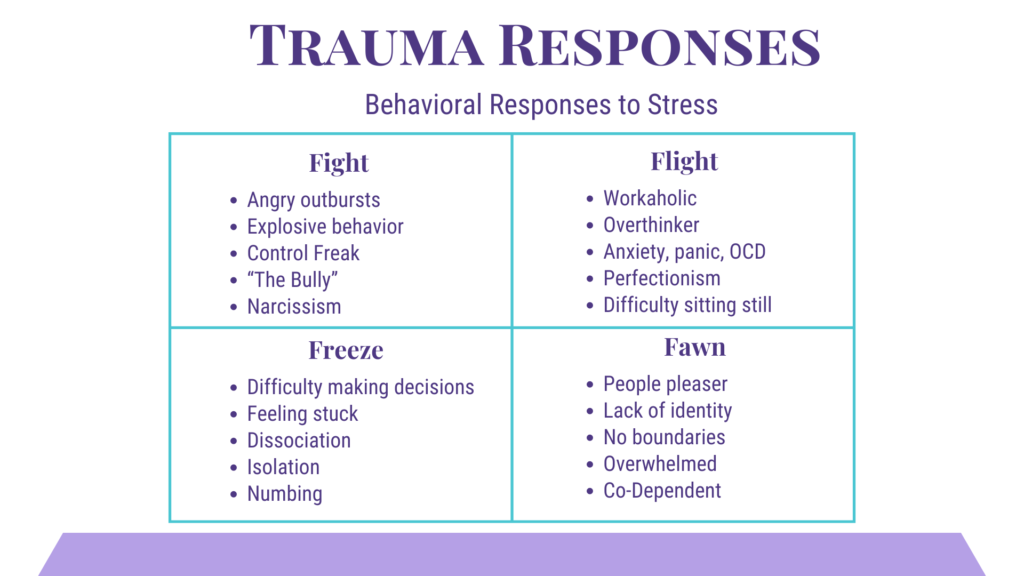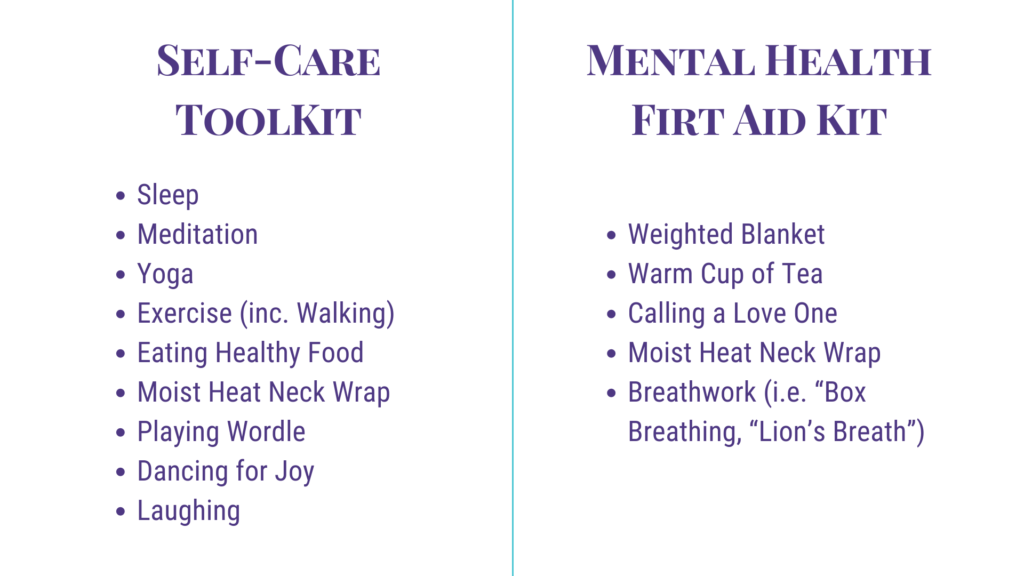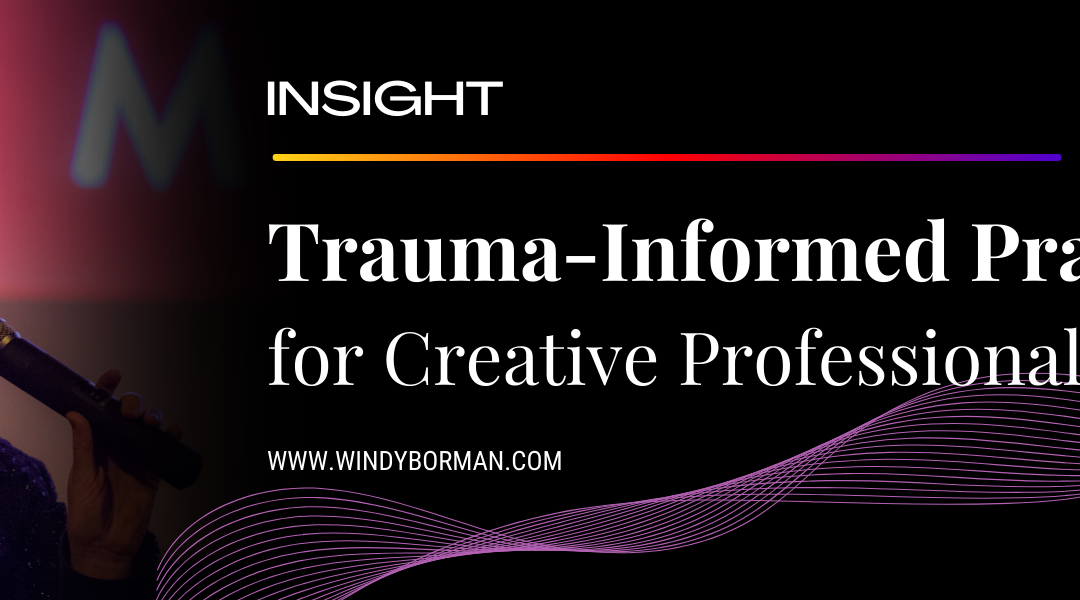If you work in a creative field like filmmaking, theatre, music, or dance, you know your mental health is crucial to your craft. Building a Self-Care Toolkit can help you manage stress, regulate your emotions, and create healthy boundaries at work and in your relationships.
In this blog post, I discuss trauma-informed practices and their importance. I will also provide examples of how I manage stress and my mental health, in the hopes they can benefit you as you develop your personal and professional toolkits.
By prioritizing your mental health, you can improve your craft, become more resilient, and build a world that supports growth and healing.
Trauma-Informed Practices
The buzzwords “trauma-informed practices” get a lot of ink these days, but we rarely stop to define them.
A trauma-informed practice consists of 5 elements:
- Recognize the pervasiveness of trauma in the world and seek to be responsive to this unfortunate reality
- Become aware of trauma’s many personal and societal consequences
- Anticipate how trauma survivors may respond to our words and actions
- Do our part to create a world that does not cause further harm
- Help to create a world that can foster growth, resiliency, and healing
The outside world is a reflection of your inner world. Before we can create a world that reduces harm and fosters growth, resiliency, and healing, we need to take inventory of how we respond to stressors (such as words, actions, and environments).
Trauma Responses (a.k.a. “Stress Responses”)
Did you know there are four (4) behavioral responses to stress? Before I studied trauma-informed practices as a Consent-Forward Artist, I knew three (3) stress responses: Fight, Flight, and Freeze. The fourth response (Fawn) was new to me; however once I learned it, I began to see it everywhere.
Below is a chart that details the four (4) Trauma Responses and their corresponding behaviors.

Personal Reflection #1:
- How do you respond to stress?
- What words, actions, or environments do you find stressful?
- What is one thing you can do today to manage your stress?
Professional Reflection #1:
- What are your default Trauma (or “Stress”) Responses at work?
- How might trauma survivors react to your words or actions?
- How might trauma survivors react to the character’s words or actions in the film, play, or live performance you’re producing?
- What steps can you take to reduce any potential harm?
“Self-Care Toolkit” vs. “Mental Health First Aid Kit”
One way we can reduce harm and stress is to create a Self-Care Tool Kit. This differs from Mental Health First Aid, which is the first aid you give until a person has received professional treatment or the mental health crisis is resolved.
“Mental Health First Aid is the help you give to someone developing a mental health problem, experiencing a worsening of a mental health problem, or in a mental health crisis.”
Below I compare examples from my Self-Care Toolkit with a Mental Health First Aid Kit:

Two things stand out when I compare these kits. First, my Self-Care Toolkit is longer than my Mental Health First Aid Kit. Fortunately, I find that if I schedule time for Self-Care each day, I can avert most mental health crises.
Second, my Moist Heat Neck Wrap appears on both lists. Not only does my neck wrap offer daily comfort for my tight neck and shoulders, but weight and heat are two (2) elements that support my mental health by getting me back in my body. Two other items that accomplish this are a weighted blanket and a warm cup of tea (to hold and drink), and both appear on my Mental Health First Aid Kit.
Personal Reflection #2:
- What items or exercises will you add to your Self-Care Tool Kit?
- what will you add to your Mental Health First Aid Kit?
Professional Reflection #2:
- How will you support the mental health of your colleagues, cast, and crew?
- What can you include in your professional Mental Health First Aid Kit?
Trauma-Informed Practices in Action
“As within, so without”. What you feel and believe tends to manifest in your personal and professional life. When you prioritize your mental health, you create healthy boundaries at work and in your relationships. Using the tools in your Self-Care Toolkit regulates your emotions, dampens your stress responses, and lowers the temperature of incendiary words and actions. When you face a stressful situation without causing more harm, you create a world that fosters growth, resiliency, and healing.


